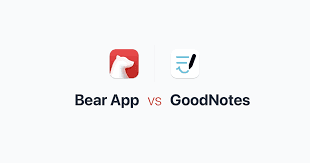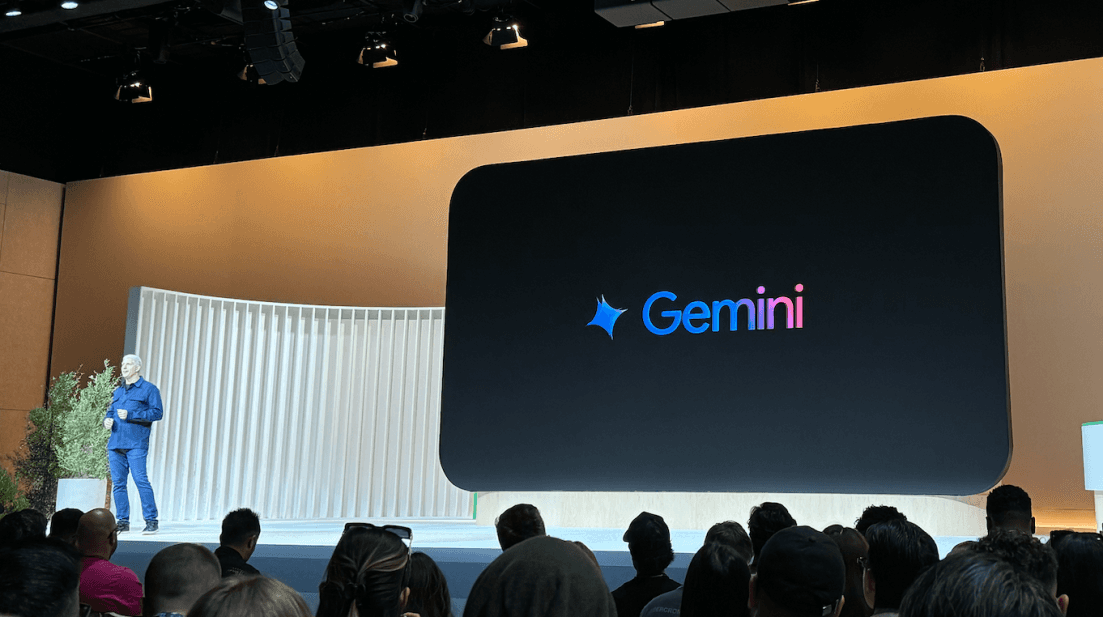Timon Harz
December 18, 2024
How CriticGPT Improves ChatGPT's Code Generation
By combining the power of CriticGPT with ChatGPT, developers can achieve faster, more efficient, and higher-quality code. This integration not only minimizes errors but also automates the tedious aspects of code review.

Introduction
ChatGPT, developed by OpenAI, has significantly advanced the field of AI-assisted code generation. Leveraging large language models, it can produce code snippets in various programming languages, including Python, Java, and C++, based on user prompts. This capability has made it a valuable tool for developers seeking quick solutions or assistance with coding tasks.
One of ChatGPT's notable strengths is its ability to generate concise and efficient code. Studies have shown that ChatGPT can produce code with smaller runtime and memory overheads compared to at least 50% of human solutions. This efficiency is particularly beneficial in scenarios where performance optimization is crucial.
However, despite these capabilities, ChatGPT's code generation is not without challenges. A comprehensive evaluation revealed that out of 4,066 programs generated by ChatGPT, 1,082 provided incorrect outputs, and 177 contained compilation or runtime errors. These inaccuracies can stem from various factors, including the complexity of the task, ambiguities in user prompts, or limitations in the model's training data.
Moreover, ChatGPT's generated code may suffer from maintainability issues. The same study found that 1,930 out of 4,066 code snippets had maintainability concerns, which could lead to difficulties in code comprehension and future modifications. This highlights the importance of not only generating correct code but also ensuring that the code adheres to best practices for readability and maintainability.
Security is another area of concern. While ChatGPT can assist in generating functional code, it may inadvertently introduce security vulnerabilities. For instance, it might not account for edge cases or input validation, leading to potential exploits in real-world applications. Therefore, developers must remain vigilant and thoroughly review AI-generated code for security flaws.
Additionally, ChatGPT's performance can vary depending on the nature of the coding task. It has demonstrated high accuracy in data analysis tasks, with a 93.1% accuracy rate, but shows limitations in visual-graphical challenges. This variability suggests that while ChatGPT is a powerful tool, it may not be equally effective across all domains of programming.
CriticGPT, developed by OpenAI, is an AI model designed to enhance the accuracy and reliability of code generated by ChatGPT. As an extension of the GPT-4 architecture, CriticGPT specializes in scrutinizing and critiquing code outputs, identifying errors, and providing feedback to improve code quality.
The primary function of CriticGPT is to assist human trainers in evaluating and refining AI-generated code. By analyzing code produced by ChatGPT, CriticGPT identifies mistakes that may be overlooked by human reviewers, thereby enhancing the overall quality of AI-assisted code generation.
In practical applications, CriticGPT has demonstrated its effectiveness in improving code review processes. Studies indicate that human reviewers supported by CriticGPT outperform those without AI assistance in detecting errors in AI-generated code.
By integrating CriticGPT into the code review workflow, developers can achieve higher accuracy and reliability in AI-generated code. This collaboration between AI models and human expertise represents a significant advancement in AI-assisted programming, streamlining development processes and reducing the likelihood of errors in deployed applications.
In summary, CriticGPT serves as a critical tool in enhancing the quality of code generated by ChatGPT. Its ability to detect errors and provide constructive feedback not only improves the reliability of AI-generated code but also supports human developers in producing robust and efficient software solutions.
Understanding ChatGPT's Code Generation
ChatGPT, developed by OpenAI, is a sophisticated language model that has significantly advanced the field of AI-assisted code generation. Its ability to generate code snippets across various programming languages is rooted in its extensive training on diverse datasets, encompassing natural language and programming code.
The process begins when a user inputs a prompt into ChatGPT, detailing the desired functionality or a specific coding task. This prompt serves as the initial context for the model. ChatGPT then utilizes its deep learning architecture to interpret the prompt, leveraging patterns and structures it has learned during training to generate a coherent and contextually appropriate code snippet.
For instance, if a user requests Python code to sort a list of integers, ChatGPT analyzes the prompt to understand the requirements. It then generates the corresponding Python code, such as:
This output is derived from the model's understanding of Python syntax and common programming paradigms related to sorting algorithms.
ChatGPT's versatility extends to multiple programming languages, including JavaScript, Java, C++, and more. Its proficiency in these languages enables it to assist developers across various domains, from web development to system programming. By providing code snippets, debugging assistance, and even explanations of complex code segments, ChatGPT serves as a valuable resource for both novice and experienced programmers.
However, it's important to note that while ChatGPT is a powerful tool, it is not infallible. The quality of the generated code can vary based on the specificity and clarity of the user's prompt. Ambiguous or poorly defined prompts may lead to code that does not fully meet the user's requirements. Therefore, users are encouraged to provide detailed and precise prompts to enhance the accuracy of the generated code.
Moreover, ChatGPT's code generation capabilities are continually evolving. OpenAI has been refining the model to improve its performance, particularly in understanding complex programming tasks and generating more efficient and secure code. Recent advancements have focused on enhancing the model's ability to handle intricate coding scenarios, thereby broadening its applicability in the software development lifecycle.
In summary, ChatGPT utilizes its extensive training on diverse datasets to interpret user prompts and generate code snippets across various programming languages. Its deep learning architecture enables it to understand and produce code that aligns with user specifications, making it a valuable tool in the realm of AI-assisted programming. As with any tool, the effectiveness of ChatGPT is enhanced by clear communication and an understanding of its capabilities and limitations.
While ChatGPT has demonstrated remarkable capabilities in generating code across various programming languages, several common issues have been identified in its outputs, including syntactical errors, logical flaws, and security vulnerabilities.
Syntactical Errors
Syntactical errors occur when the generated code does not adhere to the grammatical rules of the programming language, leading to compilation or runtime errors. These errors can arise from the model's misinterpretation of the prompt or inherent limitations in understanding complex language syntax. For instance, missing semicolons in languages like JavaScript or incorrect indentation in Python can cause the code to fail during execution. Such errors necessitate manual correction, which can diminish the efficiency gains anticipated from using AI-generated code.
Logical Flaws
Logical flaws pertain to errors in the code's algorithmic logic, resulting in incorrect outputs despite syntactically correct code. These flaws can stem from the model's inability to fully grasp the problem context or from generating suboptimal algorithms. For example, a sorting function might be implemented incorrectly, leading to unsorted outputs even though the code runs without errors. Addressing these logical issues often requires a deep understanding of the problem domain and careful review of the generated code.
Security Vulnerabilities
Security vulnerabilities in AI-generated code are particularly concerning, as they can introduce exploitable weaknesses into software applications. Studies have shown that ChatGPT may produce code with significant security flaws, such as improper input validation, which can lead to injection attacks or other security breaches. For instance, a lack of proper sanitization in user input handling can make the application susceptible to SQL injection attacks. Developers must exercise caution and thoroughly review AI-generated code to identify and mitigate potential security risks before deployment.
Mitigation Strategies
To address these issues, several strategies can be employed:
Manual Review: Developers should meticulously review AI-generated code to identify and correct syntactical errors, logical flaws, and security vulnerabilities.
Testing: Implementing comprehensive testing, including unit tests and security assessments, can help detect issues that may not be immediately apparent.
AI-Assisted Code Review: Tools like CriticGPT have been developed to analyze and critique AI-generated code, identifying errors that may be overlooked by human reviewers. CriticGPT, based on the GPT-4 model, has shown promise in catching errors in AI-generated code, enhancing the reliability of such outputs.
By adopting these practices, developers can leverage the benefits of AI-assisted code generation while mitigating the associated risks, leading to more robust and secure software applications.
Introducing CriticGPT
CriticGPT, developed by OpenAI, is an advanced AI model designed to enhance the reliability and accuracy of code generated by ChatGPT. As an extension of the GPT-4 architecture, CriticGPT specializes in reviewing and critiquing AI-generated code, identifying errors, and providing constructive feedback to improve code quality.
The primary function of CriticGPT is to assist human trainers in evaluating and refining AI-generated code. By analyzing code produced by ChatGPT, CriticGPT identifies mistakes that may be overlooked by human reviewers, thereby enhancing the overall quality of AI-assisted code generation.
In practical applications, CriticGPT has demonstrated its effectiveness in improving code review processes. Studies indicate that human reviewers supported by CriticGPT outperform those without AI assistance in detecting errors in AI-generated code.
By integrating CriticGPT into the code review workflow, developers can achieve higher accuracy and reliability in AI-generated code. This collaboration between AI models and human expertise represents a significant advancement in AI-assisted programming, streamlining development processes and reducing the likelihood of errors in deployed applications.
In summary, CriticGPT serves as a critical tool in enhancing the quality of code generated by ChatGPT. Its ability to detect errors and provide constructive feedback not only improves the reliability of AI-generated code but also supports human developers in producing robust and efficient software solutions.
CriticGPT is an advanced AI model developed by OpenAI, built upon the robust GPT-4 architecture. It has been meticulously fine-tuned to specialize in code assessment tasks, particularly focusing on reviewing and critiquing code generated by models like ChatGPT. This fine-tuning process involves training the model on a diverse and extensive dataset of code examples, error patterns, and best practices in software development. By doing so, CriticGPT acquires a nuanced understanding of programming languages, coding standards, and common pitfalls, enabling it to effectively identify and rectify errors in AI-generated code. The fine-tuning enhances its ability to detect syntactical errors, logical flaws, and potential security vulnerabilities, thereby significantly improving the reliability and accuracy of AI-assisted code generation. This specialized training positions CriticGPT as a valuable tool for developers seeking to ensure the quality and robustness of code produced through AI collaboration.
The integration of CriticGPT into the development workflow allows for a more streamlined and efficient code review process. Its advanced capabilities, honed through fine-tuning, enable it to catch subtle errors that might be overlooked during manual reviews. This not only accelerates the development cycle but also contributes to the creation of more secure and efficient software applications. By leveraging the strengths of the GPT-4 model and enhancing them through targeted fine-tuning, OpenAI has equipped CriticGPT with the proficiency required to tackle the complexities of modern code assessment tasks. As AI continues to evolve, tools like CriticGPT exemplify the potential for AI systems to augment human capabilities, fostering a collaborative environment where AI and human expertise converge to achieve superior outcomes in software development.
How CriticGPT Enhances Code Generation
CriticGPT employs a sophisticated, multi-layered approach to scrutinize code generated by ChatGPT, aiming to detect a wide array of errors that may compromise the functionality, efficiency, or security of the code. Its error detection capabilities encompass several key aspects:
Syntactical Analysis
CriticGPT meticulously examines the code's syntax to ensure adherence to the grammatical rules of the programming language in question. It identifies issues such as missing semicolons, incorrect indentation, unmatched brackets, and other syntactical anomalies that could lead to compilation errors or unexpected behavior during execution. By parsing the code line by line, CriticGPT ensures that the structural integrity of the code is maintained, thereby preventing errors that could disrupt the development process.
Logical Consistency Evaluation
Beyond syntax, CriticGPT delves into the logical flow of the code to detect flaws that could result in incorrect outputs or inefficient performance. It assesses the coherence of algorithms, the validity of control structures, and the appropriateness of data handling methods. For instance, it can identify infinite loops, unreachable code segments, or improper use of recursion that may not immediately manifest as errors but could lead to significant issues during runtime. This logical evaluation is crucial for ensuring that the code not only runs without errors but also performs the intended tasks correctly and efficiently.
Security Vulnerability Identification
In the realm of security, CriticGPT is adept at uncovering vulnerabilities that could be exploited by malicious actors. It scrutinizes the code for common security pitfalls such as improper input validation, susceptibility to injection attacks, insecure handling of sensitive data, and inadequate error handling mechanisms. By identifying these vulnerabilities, CriticGPT enables developers to fortify their applications against potential threats, thereby enhancing the overall security posture of the software.
Performance Optimization Suggestions
While primarily focused on error detection, CriticGPT also offers insights into potential performance bottlenecks within the code. It analyzes resource utilization patterns, identifies inefficient algorithms, and suggests optimizations that can lead to improved execution speed and reduced resource consumption. This aspect of CriticGPT's functionality assists developers in creating high-performance applications that can scale effectively and provide a better user experience.
Integration with Development Workflows
CriticGPT is designed to seamlessly integrate into existing development workflows, providing real-time feedback as code is being written or reviewed. Its analyses are presented in a clear and actionable manner, allowing developers to quickly understand and address the identified issues. This integration enhances productivity by reducing the time and effort required for manual code reviews and debugging, thereby accelerating the development lifecycle.
CriticGPT, an advanced AI model developed by OpenAI, plays a pivotal role in enhancing code quality by providing insightful suggestions aimed at improving both efficiency and readability. Its optimization process encompasses several key aspects:
Algorithmic Refinement
CriticGPT evaluates the algorithms employed within the code to identify opportunities for optimization. By analyzing the computational complexity and performance characteristics, it suggests more efficient algorithms or data structures that can achieve the same functionality with improved performance. For instance, replacing a nested loop with a more efficient sorting algorithm can significantly reduce execution time, thereby enhancing the overall efficiency of the code.
Code Simplification
Beyond algorithmic improvements, CriticGPT focuses on simplifying complex code constructs. It identifies convoluted or redundant code segments and recommends streamlined alternatives that maintain functionality while enhancing clarity. Simplified code is not only easier to read but also reduces the likelihood of errors, facilitating easier maintenance and future modifications.
Enhancing Readability
Recognizing the importance of code readability, CriticGPT offers suggestions to improve the clarity and organization of the codebase. This includes recommending meaningful variable and function names, consistent indentation, and appropriate commenting practices. Readable code is essential for effective collaboration among developers and ensures that the code can be easily understood and maintained over time.
Balancing Efficiency and Readability
While optimizing for efficiency, CriticGPT also considers the trade-offs with readability. It strives to find a balance where the code is both efficient and understandable, avoiding overly complex optimizations that could obscure the code's intent. This balanced approach ensures that performance improvements do not come at the expense of maintainability.
Automated Refactoring
CriticGPT assists in automated refactoring by identifying code smells and suggesting structural improvements. This process enhances code quality by organizing the codebase more logically, reducing complexity, and eliminating redundancies. Automated refactoring leads to a more robust and adaptable codebase, capable of accommodating future enhancements with minimal friction.
Performance Profiling
By analyzing the code's execution patterns, CriticGPT identifies performance bottlenecks and suggests targeted optimizations. This may involve recommending more efficient looping constructs, parallel processing techniques, or optimized library functions that can enhance execution speed and resource utilization.
Integration with Development Tools
CriticGPT seamlessly integrates with various development environments, providing real-time optimization suggestions as developers write code. This immediate feedback loop enables developers to implement best practices from the outset, resulting in cleaner and more efficient code.
CriticGPT, developed by OpenAI, is an advanced AI model designed to enhance the security of code generated by models like ChatGPT. Its primary function is to identify potential security vulnerabilities within AI-generated code and provide actionable recommendations to mitigate these risks.
One of the key capabilities of CriticGPT is its ability to detect a wide range of security flaws that could be exploited by attackers. By thoroughly analyzing the code, CriticGPT identifies issues such as improper input validation, susceptibility to injection attacks, insecure handling of sensitive data, and inadequate error handling mechanisms. This proactive approach helps prevent security breaches before they occur, making systems more resilient against attacks.
In addition to identifying vulnerabilities, CriticGPT offers detailed critiques that explain the nature of the errors and their potential impact. These critiques include specific locations of the errors, the type of error, reasons for its occurrence, and possible correction suggestions. This comprehensive feedback enables developers to understand the underlying issues and implement effective solutions.
CriticGPT's integration into the development workflow enhances the overall security posture of software applications. By leveraging its capabilities, developers can ensure that AI-generated code adheres to best practices in security, thereby reducing the risk of vulnerabilities that could be exploited in production environments. This collaboration between AI models and human expertise represents a significant advancement in AI-assisted programming, fostering a more secure and efficient software development process.
In summary, CriticGPT serves as a critical tool in enhancing the security of code generated by ChatGPT. Its ability to detect and provide recommendations for mitigating security vulnerabilities ensures that AI-generated code is robust and resilient against potential threats. By incorporating CriticGPT into the development process, developers can produce secure and reliable software solutions that meet the evolving demands of the industry.
Real-World Impact
Studies have shown that human reviewers utilizing CriticGPT outperform those without it by 60% when assessing ChatGPT's code outputs.
In evaluations involving natural bugs, CriticGPT's critiques were preferred over human critiques in 63% of cases.
These findings underscore CriticGPT's capacity to identify and rectify errors more effectively than human reviewers alone, thereby enhancing the overall quality of AI-generated code.
CriticGPT, developed by OpenAI, has demonstrated significant effectiveness in enhancing the quality of code generated by models like ChatGPT. Studies have shown that human reviewers utilizing CriticGPT outperform those without it by 60% when assessing ChatGPT's code outputs.
In evaluations involving natural bugs, CriticGPT's critiques were preferred over human critiques in 63% of cases.
These findings underscore CriticGPT's capacity to identify and rectify errors more effectively than human reviewers alone, thereby enhancing the overall quality of AI-generated code.
For a deeper understanding of CriticGPT's capabilities and applications, you may refer to the following resources:
These resources provide comprehensive insights into CriticGPT's development, applications, and impact on code quality enhancement.
Limitations and Future Developments
CriticGPT, developed by OpenAI, represents a significant advancement in AI-assisted code review, offering substantial improvements in identifying and rectifying errors in code generated by models like ChatGPT. However, despite its capabilities, CriticGPT faces certain limitations, particularly when dealing with complex codebases and integration challenges.
Handling Complex Codebases
One of the primary challenges for CriticGPT lies in effectively analyzing and reviewing large, intricate codebases. While it excels in identifying errors in shorter code snippets, its performance can diminish when applied to extensive and complex code structures. This limitation arises because CriticGPT, like many AI models, may struggle to maintain context over long sequences of code, leading to potential oversights or inaccuracies in its critiques. The complexity of modern software systems, with their numerous interdependencies and intricate logic, poses a significant hurdle for AI models in general. As noted in a study, "This limitation becomes particularly evident in complex tasks like code generation, where even experienced programmers can miss subtle bugs."
Integration Challenges
Integrating CriticGPT into existing development workflows presents another set of challenges. Developers often rely on established tools and processes, and introducing a new AI-driven model requires careful consideration to ensure compatibility and effectiveness. The integration process involves aligning CriticGPT's outputs with the team's coding standards, version control systems, and continuous integration pipelines. Moreover, there is a need for training and adaptation, as developers must become familiar with CriticGPT's feedback mechanisms and interpret its suggestions appropriately. This adaptation period can temporarily disrupt established workflows and may encounter resistance from teams accustomed to traditional code review methods.
AI Hallucinations and Accuracy
Another limitation of CriticGPT is its susceptibility to AI "hallucinations," where the model generates plausible but incorrect or nonsensical outputs. While CriticGPT has demonstrated a capacity to catch errors in code generated by ChatGPT, it is not infallible. The model's critiques are based on patterns learned from data, and in some cases, it may produce suggestions that are not applicable or accurate for the specific context. This underscores the importance of human oversight in the code review process, as developers must critically evaluate CriticGPT's suggestions to ensure their validity and relevance. As highlighted in a recent article, "Despite limitations and ongoing challenges with AI 'hallucinations,' OpenAI is actively seeking to improve the reliability of its AI-generated code."
Evolving Capabilities
It's important to recognize that CriticGPT is an evolving tool, and its limitations are areas of active research and development. OpenAI continues to refine the model to enhance its performance in handling complex codebases and improving integration with development workflows. Future iterations of CriticGPT are expected to address these challenges, offering more robust and seamless assistance to developers. The ongoing efforts aim to make CriticGPT a more effective and reliable tool in the software development lifecycle, reducing the burden on human reviewers and improving the overall quality of AI-generated code.
Conclusion
Integrating CriticGPT with ChatGPT for code generation offers several key benefits that enhance the overall quality and reliability of AI-generated code.
Enhanced Accuracy and Reliability
CriticGPT serves as a specialized model designed to review and critique code generated by ChatGPT, aiming to identify and rectify errors that might have been overlooked. This integration ensures that the code produced is more accurate and dependable, reducing the likelihood of bugs and errors in the final output. Studies have shown that individuals using CriticGPT to review ChatGPT-generated code perform better 60% of the time compared to those without such assistance.
Improved Code Quality
By analyzing code for potential issues, CriticGPT can suggest improvements for code efficiency and readability. This leads to cleaner, more maintainable code that adheres to best practices, ultimately resulting in more robust applications. The integration of CriticGPT with ChatGPT allows for a more streamlined code generation process, where the initial code produced by ChatGPT can be quickly reviewed and refined by CriticGPT, ensuring high-quality outputs.
Enhanced Security
CriticGPT can identify potential security vulnerabilities in the generated code and provide recommendations to mitigate them. This proactive approach to security helps in building applications that are more resilient to attacks and comply with security standards. By integrating CriticGPT with ChatGPT, developers can ensure that the code generated not only functions correctly but also adheres to security best practices, reducing the risk of security breaches.
Increased Developer Productivity
The integration of CriticGPT with ChatGPT can significantly boost productivity by automating the code review process. This allows developers to focus on more complex tasks, as CriticGPT handles the initial review and refinement of code. Such integrations can help solve real-time issues at a fraction of the time, increase customer engagement, boost satisfaction, and improve the overall business bottom line.
Consistent Code Reviews
CriticGPT provides consistent and objective code reviews, reducing the variability that can occur with human reviewers. This consistency ensures that all code generated by ChatGPT meets the same standards, leading to a more uniform codebase. By integrating CriticGPT, teams can maintain high standards across all code outputs, ensuring quality and reliability throughout the development process.
Integrating AI-assisted tools like CriticGPT with ChatGPT represents a significant advancement in software development, offering numerous benefits that streamline the coding process and enhance overall productivity. These tools are transforming traditional development workflows by automating routine tasks, improving code quality, and enabling developers to focus on more complex and creative aspects of their work.
One of the primary advantages of integrating CriticGPT with ChatGPT is the substantial increase in developer productivity. Studies have shown that developers using AI coding assistants can experience productivity increases of up to 45%. This enhancement is achieved through the automation of tasks such as code generation, documentation, and debugging, allowing developers to allocate more time to problem-solving and innovation.
Furthermore, AI-assisted tools contribute to improved code quality by reducing the likelihood of coding errors and enhancing the accuracy of code. This leads to more reliable software, increased application performance, and better performance metrics for developers. By identifying and rectifying errors early in the development process, these tools help in building robust applications that meet high-quality standards.
The integration of AI tools also facilitates the automation of routine tasks, such as code documentation and unit test generation. This automation frees developers to focus on more complex and creative aspects of their work, thereby enhancing overall productivity and efficiency. By handling repetitive tasks, AI tools allow developers to dedicate their expertise to areas that require critical thinking and innovation.
Moreover, AI-assisted tools can significantly speed up aspects of the development process, such as code generation and completion, allowing for faster delivery of software projects. This acceleration is crucial in today's fast-paced development environments, where time-to-market can be a critical factor in a product's success. By streamlining the coding process, AI tools enable teams to deliver high-quality software more efficiently.
In summary, the integration of CriticGPT with ChatGPT exemplifies the transformative impact of AI-assisted tools on software development. By automating routine tasks, improving code quality, and enhancing developer productivity, these tools are reshaping the development landscape, enabling faster, more efficient, and higher-quality software creation. As AI technology continues to advance, its role in software development is expected to become increasingly integral, further streamlining processes and driving innovation in the field.
Press contact
Timon Harz
oneboardhq@outlook.com
Other posts
Company
About
Blog
Careers
Press
Legal
Privacy
Terms
Security




